MaxHealthFuel’s Biotin is perfect for active individuals who want to keep their hair, skin, and nails looking vibrant, complementing an active and healthy lifestyle.
Biotin, also known as vitamin B7, is a water-soluble vitamin that naturally supports various metabolic processes in the body. These capsules contain Biotin in a pure and easily accessible form.
Ingredients:
Biotin (as D-Biotin) – 5000 mcg (5 mg)
Vegetable Cellulose (capsule shell) – 300 mcg
Rice Flour (optional filler) – 200 mcg
Magnesium Stearate (optional flow agent) – 100 mcg
Keep out of reach of children to avoid accidental ingestion.
Store in a cool, dry place, away from direct sunlight and moisture.
These statements have not been evaluated by the Food and Drug Administration. These products are not intended to diagnose, treat, cure, or prevent any disease.

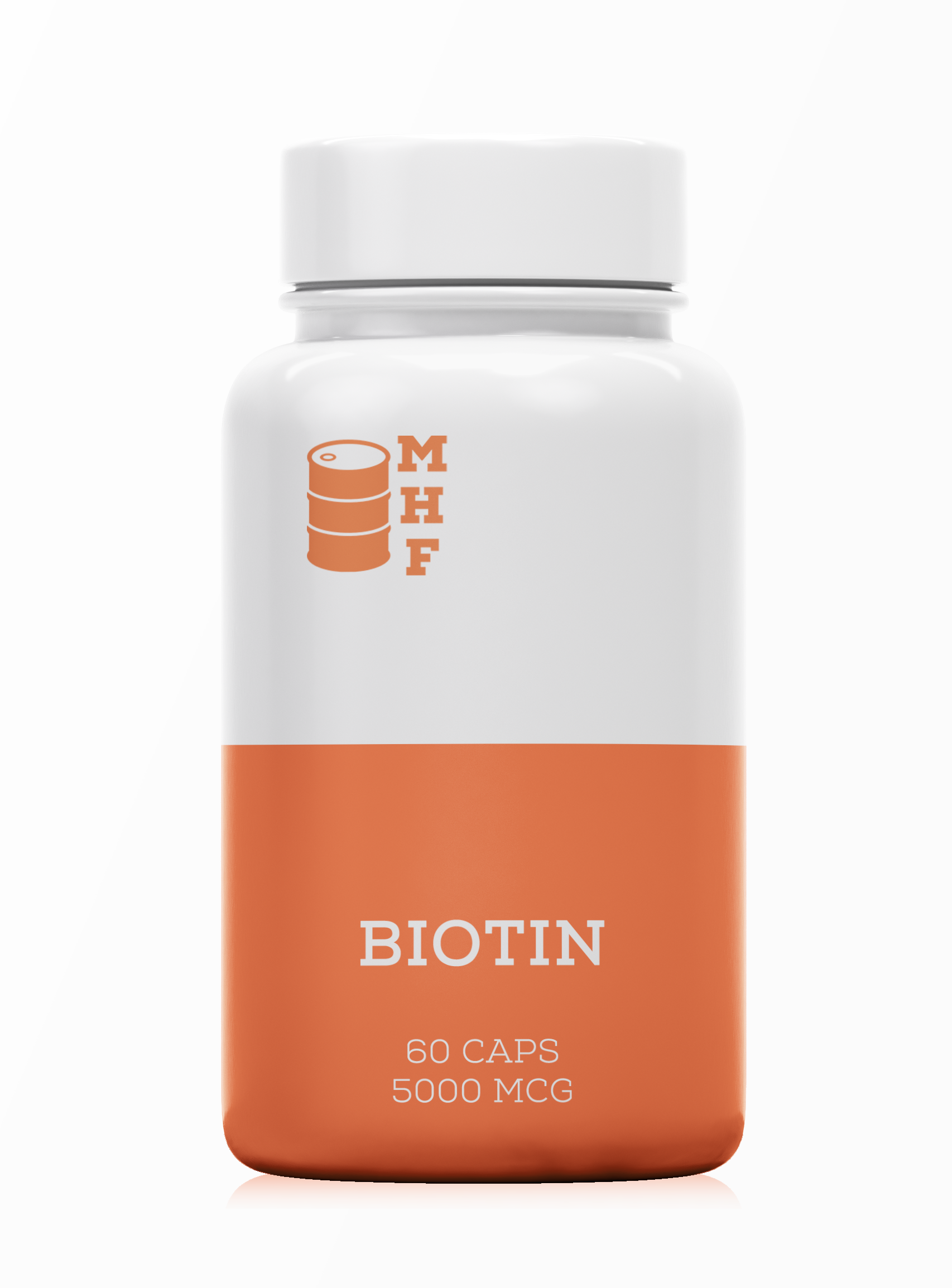
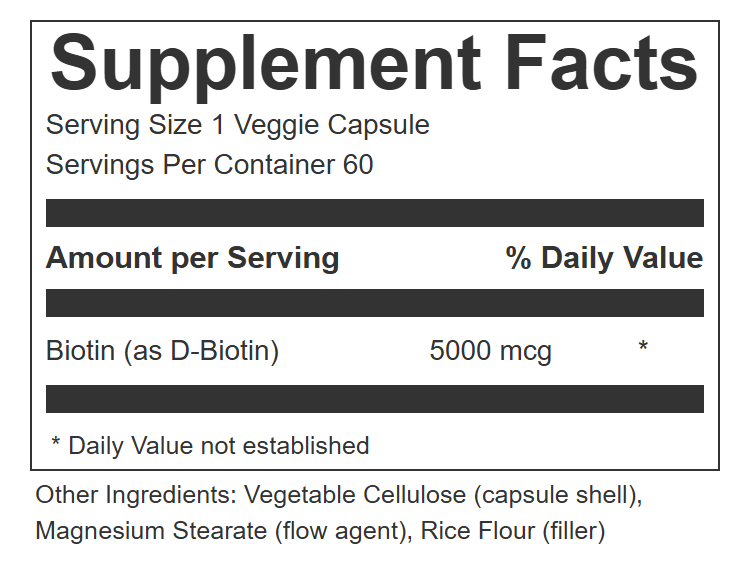
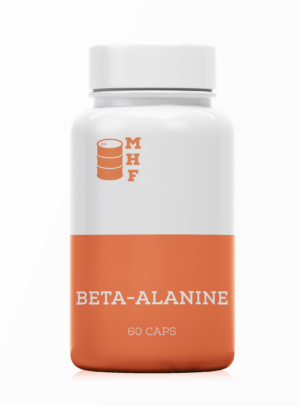
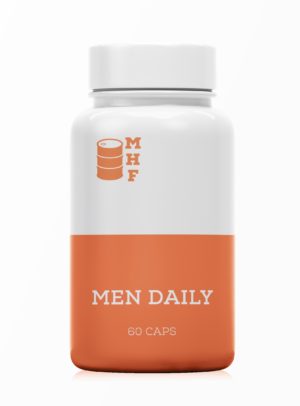
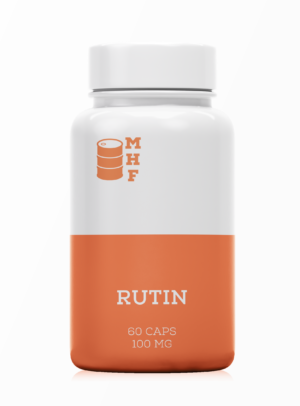
Reviews
There are no reviews yet.